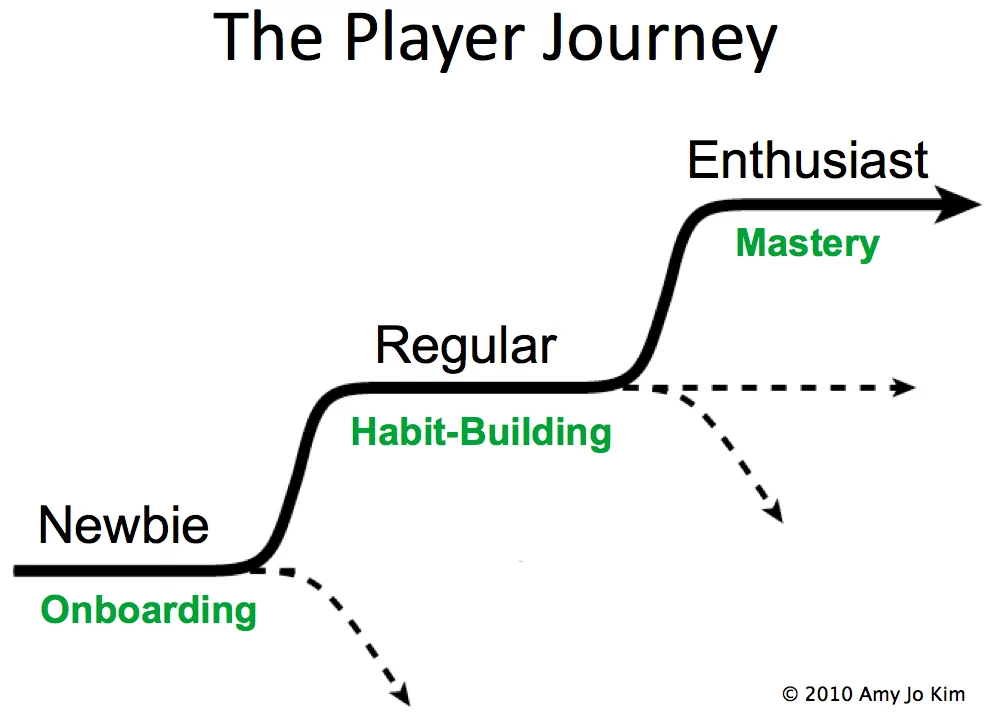I want to keep this Ludic Spirit idea going as it is now shaping how I view pretty much everything in a way that gamification never really did. It is a much simpler way to improve the world around me that does not rely on the sorts of reward frameworks that gamification often needs you to design.
Obviously, I am still using RAMP (Relatedness, Autonomy, Mastery & Purpose) to help me break down how I am applying Ludic Spirit-related elements and concepts. However, for now, I am focusing on me, the person, not me the product designer – sometimes you have to shift focus back to you!
Relatedness
Playing by yourself can be fun and creative, but having friends playing with you can be even better. Having supporters, allies and friends can help you to be even more creative and productive. Where this changes slightly from my general view of RAMP in gamification, is that these supporters don’t need to be directly designed into the “gameplay”. They can be mentors, mentees, friends, random folk you find on Slack – anyone that can join in with the play to help you overcome specific challenges that you are finding too much for you to solve solo.
Autonomy
Autonomy is key to play. I have spoken about this in exhaustive and quite boring length in my blogs and book (The Game Design Handbook: Even Ninja Monkeys Like to Play). At its core, play is free-form, has no real extrinsic / system-based rules and is voluntary.
Of course, not everything is voluntary and not everything can have no rules. However, Ludic Spirit is as much about mindset as it is designed. If you open yourself up to reframing the problem (remember the example of untangling some necklaces being a puzzle game rather than a ball ache?), then you will feel a little more autonomy, as you are taking control of the situation as best you can.
Mastery
Every game has some sort of challenge, so it is easy to apply mastery to game design – learn the skills to overcome the challenge. Well, when I am considering a problem with my Ludic Spirit Filtered glasses on, I look at what the challenges are and how I can add a layer of play to my mindset around solving them. Just like games, every challenge you face in real life needs a set of skills to overcome. Sometimes you have those skills, sometimes you need to learn them. If you have the skills, then the challenge might be easy to overcome but can be seen as practice – a way to hone those skills and make them more embedded in your muscle memory. If you don’t have those skills, learning them puts you on an obvious path of mastery.
Take guitar. Every day I play stuff that I know, which while not challenging, helps keep my memory of the music fresh and commits the tunes to muscle memory more and more. I also play stuff I don’t know, such as learning a new song. Then I need to learn the structure, the chords, the solos and so on. They may not always be difficult, but as I don’t know them, they provide a level of challenge. I get to play with making the song my own as well, using my little embellishments and so on to give the song a feeling that fits my playing style.
Purpose
When talking about gamification, I explain there are two types of purpose. Altruistic and Meaningful. Altruistic purpose is focused on the desire to help others – where the Philanthropist HEXAD type comes from. Meaningful purpose is all about trying to figure out WHY you are doing something, what is the point of it all?
When you look at a game, it is easy to see the meaning, as it is usually two things. 1. It is enjoyable to play the game. 2. There is a story to follow, a mission – something that gives you a reason to keep stomping the mushrooms to death.
Day to day, that is a lot harder to nail down. Other than “pay the mortgage”, the meaning can be hard to decipher as you answer your 45th email of the morning. So you have to create meaning in the tasks you have in front of you.
I often think about what happens if I don’t do something, what knock on effects would it have – who else will me not doing what I should be doing affect and what issues could that cause them. So not thinking “Urg, I just don’t want to do this”. Thinking “If I don’t do this, Dave is going to struggle to get the code right, so Sally is going to be able to get the project signed off for the client, which means Greg will get it in the neck” etc. etc. That way it is not just about me, there are more players in the game that are relying on me to complete my work.
Again, it is a mindset shift, not a change in task.
Mindset vs Desgin
This is a quick outline of how RAMP can be applied to Ludic Spirit. It all highlights a really important piece of this though, it is a mindset shift.
When you are looking inwards at this, the mindset shift comes from how you reframe and refocus. However, you can also design Ludic Spirit into experiences for others, to help guide them into that Ludic Mindset – but we will cover that another day.
For now, focus on yourself – it really is vital!
Similar Posts:
- The RAMP to Fun
- Relatedness: The Often Ignored Glue of Gamification
- glossary/" rel="bookmark" title="The Language of Gamification – Short Glossary [Updated]">The Language of Gamification – Short Glossary [Updated]


Also published on Medium.

